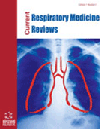
Full text loading...
Long COVID, or post-COVID syndrome, has emerged as a significant public health challenge, leaving countless individuals with lingering symptoms such as fatigue, breathlessness, and neuropsychiatric issues. Recent evidence suggests a potential role for Vitamin D in alleviating these symptoms, given its anti-inflammatory, immunomodulatory, and neuroprotective properties. Vitamin D’s ability to modulate cytokine storms, enhance antiviral defenses, and support tissue repair highlights its potential for addressing the complex, multi-system effects of Long COVID. This narrative review examines the link between Vitamin D deficiency and the risk of developing Long COVID or experiencing severe COVID-19 (Coronavirus disease 2019) outcomes while also exploring the effectiveness of Vitamin D supplementation in reducing symptom severity and duration in affected individuals. Findings from several observational studies and clinical trials reached varying conclusions. While some studies link lower Vitamin D levels to an increased risk or severity of Long COVID, others report no significant correlation. Furthermore, current clinical trials investigating supplementation indicate potential benefits, including reduced disease severity, lower mortality rates, and improved recovery outcomes, particularly in individuals with pre-existing deficiencies. However, inconsistencies in the structure of clinical trials drive a need for further standardized, large-scale clinical trials to better define Vitamin D’s role in the prevention and management of Long COVID. Vitamin D represents a promising avenue for mitigating the long-term impacts of COVID-19. While current evidence is inconclusive, its safety, affordability, and potential efficacy warrant its consideration in global health strategies aimed at supporting recovery from this complex syndrome.

Article metrics loading...

Full text loading...
References


Data & Media loading...

